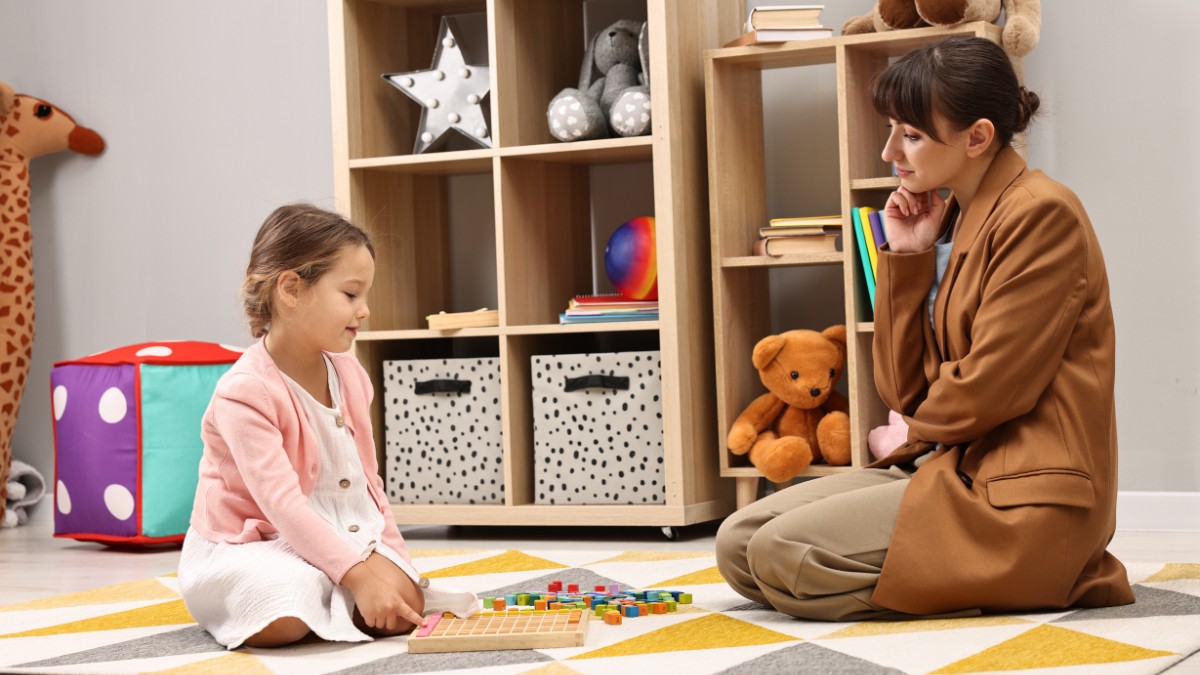What to Look for in ABA Therapy Programs in Indiana
ABA Therapy Programs in Indiana should offer personalized care, trained staff, and proven results. Discover what to look for before choosing the right program.

What to Look for in ABA Therapy Programs in Indiana
Key Points:
- High-quality ABA therapy programs in Indiana focus on individualized care, data-driven methods, and family involvement.
- Credentials, supervision structure, and staff training are critical for evaluating a program's legitimacy and effectiveness.
- Parental collaboration and cultural sensitivity should be non-negotiable features in any strong ABA therapy environment.
When you're searching for ABA therapy programs in Indiana, the stakes feel incredibly high—because they are. You're not just looking for a service; you're making a choice that can deeply impact your child's growth, independence, and quality of life. With options varying widely across Indiana, knowing what to look for isn’t just helpful—it’s essential.
ABA (Applied Behavior Analysis) is a structured, evidence-based approach that targets behavior improvement in children with autism and related conditions. But not all ABA therapy programs are created equal. From staff credentials to program structure, the right details make all the difference.
Below is a comprehensive guide to help you confidently evaluate your options and find a program that supports both your child and your family in meaningful, measurable ways.
Individualized Treatment Planning and Assessment
One-size-fits-all doesn’t cut it in ABA.
The most effective ABA therapy programs in Indiana begin with a detailed assessment and use that data to create an individualized treatment plan. This plan should be tailored to your child’s specific needs, preferences, developmental level, and family dynamics. If a provider is offering the same pre-set curriculum to everyone, that’s a red flag.
Look for programs that:
- Conduct a full functional behavior assessment (FBA) before starting.
- Establish short-term and long-term goals in domains like communication, social skills, and daily living.
- Update treatment plans regularly based on data collected during sessions.
Why does this matter? Because without a strong, individualized plan, therapy becomes guesswork. And guesswork doesn't help your child make meaningful progress.
Qualified and Credentialed Staff
The people delivering the therapy matter just as much as the therapy itself.
ABA therapy should be supervised by a Board Certified Behavior Analyst (BCBA), and the day-to-day sessions are typically conducted by Registered Behavior Technicians (RBTs). But those credentials aren’t just titles—they signal a standard of care.
Here’s what to verify:
- BCBAs are licensed (if required by the state) and maintain active certification.
- RBTs are properly trained and supervised.
- Ongoing training and professional development is part of the culture.
- Supervision occurs at least 5% of the RBT’s therapy hours per month.
If you’re not sure how to check these, ask the program directly or consult the Behavior Analyst Certification Board (BACB) registry. Transparency should never be an issue.

Parent Involvement and Training
You are your child’s most consistent support system.
Quality ABA programs don’t operate in a vacuum—they actively involve you, the parent or caregiver, in the process. This means more than just getting periodic updates. You should be receiving regular training and coaching so you can apply ABA strategies at home, in the community, and in daily routines.
Effective parent involvement looks like:
- Scheduled parent training sessions built into the treatment plan.
- Ongoing feedback about your child’s progress and behavior trends.
- Guidance on managing challenging behaviors outside therapy.
Programs that treat you as a partner—not just a bystander—are more likely to lead to long-term success.
Therapy Settings and Service Models
Where your child receives therapy can affect how well they respond to it.
Different ABA therapy programs in Indiana may offer services in various environments: in-home, in-clinic, in-school, or a combination. Understanding how these settings align with your child’s needs is vital.
Here’s a breakdown:
- In-home ABA therapy offers a natural environment and supports routines directly.
- Clinic-based therapy provides a structured, distraction-free space ideal for skill-building.
- School-based therapy allows for social skills generalization and academic support.
There’s no single “right” model—it depends on what works best for your child and your family. Some programs, like those offered by Supportive Care ABA, provide flexible service options to ensure consistent progress across multiple settings.
Focus on Meaningful, Functional Skills
Not all skills are created equal—some make a real difference in daily life.
Strong ABA therapy programs prioritize teaching your child functional skills that improve independence and quality of life. This can range from toileting and dressing to asking for help or managing big emotions.
Here are a few examples of what high-impact, functional goals may look like:
- Communication Skills: Whether your child is verbal or nonverbal, programs should include a strategy (like PECS or AAC) to build clear, effective communication that reduces frustration and behavioral outbursts.
- Daily Living Tasks: Skills like brushing teeth, feeding, and toileting allow for greater independence. These should be included in the plan if they’re developmentally appropriate.
- Social and Play Skills: Programs should help your child learn how to initiate play, share, take turns, and recognize social cues.
- Emotional Regulation: Identifying feelings, asking for breaks, and using calming techniques are powerful tools for lifelong coping.
If the therapy focuses too much on flashcards or rote memorization without generalization, ask for clarification.
Data Collection and Progress Monitoring
ABA is a science. That means decisions should be driven by data—not hunches.
Every ABA therapy session should include structured data collection to track progress on specific goals. This data allows therapists and BCBAs to adjust strategies as needed and make sure your child is actually improving.
Before enrolling, ask:
- How is data collected and stored?
- How often is progress reviewed and discussed with parents?
- What happens if your child is not progressing on a goal?
Programs like those provided by Supportive Care ABA prioritize transparent communication and regular reviews to keep everyone aligned.
Cultural Sensitivity and Family-Centered Values
Your child is not just a diagnosis—and your family is not just a case file.
Cultural sensitivity in ABA therapy means understanding and respecting your family's values, traditions, language, and priorities. This includes accommodating your child’s learning style and adjusting interventions to fit your home life.
A strong program should:
- Ask about your family routines and preferences during intake.
- Incorporate your values into the treatment goals.
- Offer bilingual staff or translation services if needed.
Family-centered therapy isn’t a trend—it’s a necessity for effective care.
13 Red Flags to Watch Out For
Even in a field as research-based as ABA, not every program is reliable. Here’s what to steer clear of:
1. No BCBA Involvement
A Board Certified Behavior Analyst (BCBA) should oversee your child’s program. If a center operates without BCBA supervision, it’s a major red flag for the quality and safety of services.
2. Vague Treatment Plans
Effective ABA plans are clear, specific, and measurable. If goals are generalized or hard to track, progress will be difficult to assess and treatment may not be truly individualized.
3. High Staff Turnover
Frequent changes in therapists can disrupt your child’s learning and comfort. Stability in staffing helps foster trust and continuity in programming.
4. No Parent Training Offered
Parents should be involved in their child’s ABA journey. If a provider excludes you from training or collaboration, it limits your ability to reinforce skills at home.
5. Promises of Fast Results
ABA is a long-term, evidence-based approach tailored to each child. Any claim of “quick fixes” or guaranteed results should be viewed with skepticism.
6. Lack of Data Collection
ABA relies on continuous data collection to guide decisions. If a program doesn’t track data or share progress regularly, that’s a serious concern.
7. Inflexible Programs
Children grow and change, and so should their therapy. Programs that don’t adapt or revise treatment plans as needed may not be truly individualized.
8. Poor Communication
You should have open access to your child’s team. If a provider is difficult to reach or avoids giving updates, it can hinder trust and collaboration.

9. One-Size-Fits-All Approach
ABA should never be cookie-cutter. Programs that don’t tailor their methods to your child’s learning style, strengths, and challenges may be ineffective.
10. Limited or No Community Integration
Good ABA programs help children generalize skills in real-world environments. If all learning happens in isolated settings, it may not support long-term independence.
11. No Clear Discharge or Transition Plan
Quality providers plan for progress, which includes setting long-term goals for greater independence or transitioning out of intensive services. A lack of future planning is a warning sign.
12. Untrained or Inexperienced Technicians
Registered Behavior Technicians (RBTs) should be well-trained and supervised. A program relying heavily on untrained staff without oversight may compromise your child’s progress.
13. Unwillingness to Collaborate with Other Providers
Interdisciplinary collaboration is often essential. If an ABA provider resists communicating with your child’s speech therapist, OT, or school team, that may hinder comprehensive care.
If something doesn’t feel right during the intake process, it’s okay to keep looking.
Questions to Ask Before Enrolling
It’s a good idea to go into your first consultation prepared with questions. Here are some to get you started:
- Who will be supervising my child’s program, and how often?
- How are goals set and updated?
- What training do your staff undergo before working with clients?
- What’s your parent involvement policy?
- Can you describe a typical session and what progress looks like?
- Do you offer services in-home, in-clinic, or both?
The answers to these questions will give you a strong sense of how the program operates—and how seriously they take your child’s development.
ABA Therapy in Indiana and Beyond: How Supportive Care ABA Can Help
Finding the right ABA therapy program is about more than ticking boxes. It's about finding a team that sees your child as a whole person, values your input, and uses proven strategies to support lasting progress.
Supportive Care ABA offers ABA therapy services in Indiana—and also serves families in Georgia, Oklahoma, Virginia, and North Carolina. With a commitment to individualized care, compassionate professionals, and evidence-based interventions, our team works with families to create real, measurable growth.
If you're navigating options and feeling overwhelmed, you're not alone. Let us walk this path with you. Reach out today to learn more about ABA therapy in Indiana and how Supportive Care ABA can support your child’s success.



.jpg)
.jpg)
.jpg)
.jpg)
.jpg)






